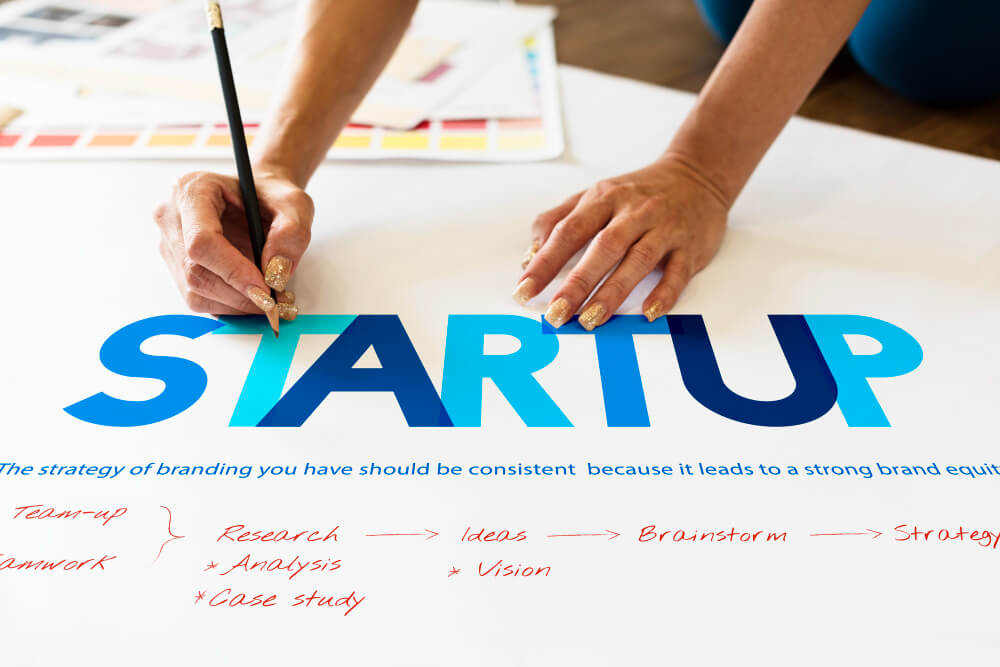Do you have business debts? It can get overwhelming if you are not paying them on time. Thousands of businesses in the United Kingdom struggle financially to pay off their debts.
You might take debts to scale up a business, but excessive debts can decrease your cash flow, create trouble accessing additional capital, and affect your credit score.
If your business has debts squeezing out the joy of being an entrepreneur, start paying them off as early as possible.
Here is a step-by-step guide to help you understand, pay a business debt, and reclaim sanity.
Table of Content
What is business debt?
Debts can be of two types: consumer debt and business debt.
Consumer debt refers to the money owed by individuals for personal or household reasons.
And business debts are non-consumer debts that an individual borrows for business purposes.

But, if you are buying a personal computer on debt for business purposes, it will be your consumer debt, not business debt. Similarly, if you have credit card debt on a company expense card for personal reasons, it will be business debt, not consumer debt.
How much debt for a business is considered healthy?
A healthy debt for any business isn’t a defined amount; it depends on your business’s financial situation. Healthy debt is the amount of money you owe for business growth.
Debt can be either a good debt or a bad debt. Good debt is helpful for your business as it has a clear plan. But, bad debts have a negative impact on businesses as it has no clear plans of where the money went.
What are the types of business debts?
Listed below are some of the business debts in the Uk:
1. HMRC Debts
It is a priority debt, where you owe income tax, National Insurance, and VAT payments to the HMRC. You must pay off these debts as early as possible, or HMRC can take more drastic actions than other creditors and legally recover the money owed.
2. Business Rates Debts
These are priority debts similar to HMRC debts, where businesses are liable to pay off business rates (a business tax) to the Council. If you have ceased trading, inform the Council immediately.
You can contact the Council for a payment plan. Plus, look for relief on business rates for reduced payments.
3. Business Utility (Gas, Electricity, and Water) Debts
These are business necessities, and you are liable to pay for any debt. For gas and electricity debts from business premises, the money owed gets added to the home account if they have the same account name and the same provider. Therefore, it is a priority debt as the service provider can disconnect your connection for not paying the bills.
For water debts, the service provider won’t disconnect the connection for your home but get a County Court Judgement against you. It is also a priority debt.
4. Business supplier debts
Business suppliers provide goods and services to your business, and paying their debts on time is essential. Otherwise, it may impact your supplier relationship, and companies often face difficulties getting goods during need. The business suppliers can contact debt collection agencies to recover money, but they don’t have similar power as HMRC and the Council.
How to pay off your business debts?
Look at your debts
You need to assess your debts and list the debts you owe and to whom. Some of the business debts may include:
- Business rates
- Tax bills
- Utility bills
- Mortgage and rent payments
- Supplier payments
- Bank loans
- Borrowing money with a personal guarantee
Contact with creditors
Communication with creditors is crucial if you are not in a proper financial state to pay your tips. Explain to them your current positions and the steps you are considering to recover them. Creditors may offer you advice.
You can negotiate with lenders to make your debt cheaper, reduce your interest rates, or increase the time of repayment. You can reduce the chance of taking formal action against you to recover debts.
It can be difficult for business owners to reduce staff; however, it will free up funds for your company to survive. An entrepreneur must do a company health checkup to minimise the risk of bankruptcy.
You may relocate your company to an affordable place, like co-working spaces or business hubs.
Selling company assets
Look for assets you no longer use in the business, like old equipment or a machine that stacks at one corner of your store room. Selling them will free up much-needed cash to pay off your debts.
Improve cash flow
There are several ways to improve your cash flow:
- Cutting unnecessary expenses
- Ensuring the customers pay on time
- Negotiating credit from suppliers
- Carrying less stock
Increase business revenue
To pay off your business debts efficiently, ensure you make more money in the business. It can include upselling your customers, optimising your inventory, honing your price strategy, offering discounts and rebates, and others.
Businesses must have an adequate budget that ensures they spend responsibly by keeping their debts in control. Use free accounting software to automate expense tracking and budgeting to avoid the debt trap.
The most proven budgeting method used in businesses is zero-based budgeting. If you spend and pay your debt according to the budget, and your income is as per the expectations, you will end the books at zero for the accounting period.
Look for ways to raise funds
You can look for ways to raise funds to pay debts, but the course may not be easy. However, you can consider the following:
- Borrowing from friends and family
- Liquidating assets
- Look for a new investor
- Refer to Peer-to-peer lending, crowdfunding, or other investment options
Other options for paying off debts
Individual Voluntary Arrangement
An Individual Voluntary Arrangement or IVA can help you settle debts by being a part of what you owe into affordable payments. You agree to pay regular payments to your insolvency practitioner, who further assists in dividing the money among creditors.
Breathing Space Scheme
Apply for the ‘Breathing Space’ Scheme, where you get temporary protection from creditors for up to 60 days while offering you debt advice and a plan.
During this period, they cannot take any enforcement action, contact you to discuss debts, or add interest and charges to your debt amount.
Debt Relief Order
Apply for a Debt Relief Order or Bankruptcy Order when you don’t have enough money or assets to sell to pay off debts. The debt amount must be less than £30,000; you don’t have extra income and do not own a home.
Under this, your creditor will not recover any money without the court’s permission, and you usually get a free period of debt payment for 12 months.

Wrapping up
You must make paying off debts a priority task. If your business fails to clear debts in time, it will lose goodwill and impact your credit score. A negative impact on the credit score creates problems while applying for business loans and seeking future investments.
You can talk with a professional to prepare an effective business plan, assist you in repaying debt, understanding debt, improving cash flow, and making other necessary decisions to protect your company.










Leave a Reply